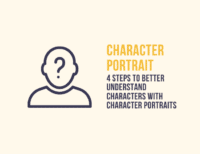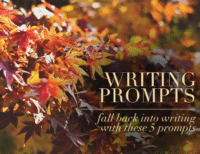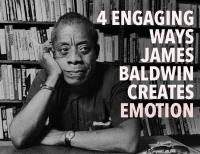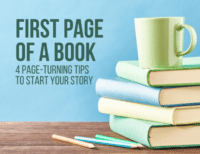I’m just going to admit it. I am not one of those people who can sit at the computer and “see where a character takes me”—and I never will be. I recognize and respect that every writer is different, but from my experience, planning—or crafting as I prefer to call it—is one of the most vital aspects of writing fiction. I simply can’t in good conscious advocate another way.

Photo by Sean MacEntee
Some may argue that outlines, etc. hinder creativity, but I’d like to suggest the opposite. Crafting your novel in advance will free your imagination and enable you to produce a more satisfying read. Here’s why.
Fiction Is Supposed to Make Sense
Mark Twain said it. Tom Clancy said it. And now I’m repeating it. The difference between reality and fiction is that fiction has to make sense.
I tried writing a novel without planning once—I ended up producing slightly fictionalized versions of things that happened to me and my friends. The scenes didn’t fit into a broader theme because I didn’t have one. None of the choices I made had more than a surface-level meaning. (For an example of the potential perils of this approach, check out this blog post.)
For my latest manuscript, I organized the plot in advance and thought deeply about the characters, their motivations and story goals (with the help of the Snowflake method). Of course a lot of things changed along the way, but I always knew the core components of my story well. At any point in the process, I could have given you a one-sentence description of my novel because the big picture was very clear to me.
That was freeing.
What I discovered was that planning in advance gives you direction and purpose as you write. The song playing in the background, the article the character reads, the case she is working on—they all matter. They all must in some way reflect the theme of the novel or the sentiment of the scene.
And it's fun crafting details that you know have a deeper significance—some obvious to reader, some not. You get the sense that you're creating art rather than simply recording your observations. It's crazy but organization does that.
You’ll Do a Better Job Foreshadowing and Distracting
Every novel must do it—foreshadow and distract. You foreshadow key revelations or big decisions by sprinkling hints of what’s to come. When it does happen, it makes sense to the reader whether they have anticipated it or not. At the same time, you also must include a few distractions (e.g., an alternative suitor for your heroine) to occasionally steer the reader in the wrong direction so your plot isn’t too predictable. These elements will make reading your story a more satisfying experience.
It’s simply easier to foreshadow and distract if you know what’s going to happen. Planning makes this process more organic than adding these elements after the fact.
An Outline Isn't a Novel
I just want to get this out of the way. I’ve heard many people say that they don’t like the idea of being confined by an outline (or other form of planning). To that my response is this: an outline is not a novel.
I don’t care how long or detailed it is—trust me, once the outline is finished you’ll still have plenty more to do. Planning only takes care of some of the structural and organizational aspects. Even if you know the major plot points, you still have to creatively write innovative paths for your characters to get there.
How do you plan your writing?
PRACTICE
Take fifteen minutes to outline or plan a scene that has something to do with freedom. Now write it. Share with us below!







I find it’s a LOT easier to write a novel when you make a clear, detailed outline. If you just jump into, it’s 1) not going to be as good and 2) require more revisions.
I agree 100%! It actually makes your writing better!
I have just realized, two things, one my stories are not still ready to underline, or that process should go later after I have went deeper into the world of the stories that I want to tell, and I think the second option might be the best, but I will try to make some sketches of outlines of the stories I would like to work on.
Good luck!!
Thanks.
To each their own. I find the writing flows better without an outline. And I was surprised to find that even writing without an outline, I ended up with foreshadowing (I know that sounds word, but it did happen- when I was looking for a catalyst to instigate something I’d planned, I realized that I’d actually written one into the story earlier, so that ended up foreshadowing the event ) and managed to throw in distractions as well. When I reached the end of the story, I was actually surprised at how well the whole story came together. I think this is not a point worth arguing over: the best plan is the one that works best for the writer. For some it’s vanilla ice cream, for some it’s chocolate or coffee, or cookie crumb or pistachio, or chocolate ripple… Whatever works 😉
I agree with you. My closest friend whipped out 60,000 words for NaNo in November without an outline. She just lets her characters talk. Amazingly the story arc flows beautifully. She still has a lot of editing for typos, passive voice and description, but her arc and dialog are rock solid. Fifty years of writing helps that process. I like to pants and then, outline to get a good arc and fill in the gaps.
I am hopeless when it comes to plotting arcs. I was amazed when a writer friend showed me how what I wrote ‘arc’ed beautifully all on its own. In my case I think it’s osmosis, from over 50 years of reading…
That must be true of my friend too. I think you both must have amazing memory skills too. In the meantime, I like to pants and I have to plan if I want something cohesive.
Sometimes I think ahead from one pants session to another but that’s about it. But as I said, whatever works for you. Combinations are also good, where you have a general idea of where you’re going, but pants the how…
Well, aside from ‘write everyday’, the other part of practice is ‘read a lot’. You’re right that we do absorb a lot. For example, I never learnt grammar but still manage to string sentences together pretty competently. However, my poor son, who’s profoundly deaf, does have to remember all his grammatical rules of thumb while writing simply because he doesn’t hear everything the way it’s said.
I think that different people absorb differently. My husband doesn’t speak English, so my children grew up bi-lingual, with English not being their stronger language. And yet, the son who reads the most in English (actually, change that to the only one who reads regularly in English) has the worst grammar of them all. Even his Hebrew-speaking Yemenite wife corrects him on his grammar all the time…
You’re right, it depends on the writer. It’s just in my personal experience, planning in advance has made a huge a difference, so I always advocate that route!
😉 Just wanted to get the point across. There are many ways of getting it done; we each have to pick the methods that work best for us.
Our processes sound very similar, Mirel. I pre-write about the characters and things that might happen, but then just sit down and write, and worry about imposing structure later. When later comes, I find the structure is already there. 🙂 I’ve passed this post to friends who plan and outline. We support each other in our different methods, thank goodness.
Monica this is so true! So many writers label themselves seat-of-the-pants writers because it sounds good. Truthfully, there are very few completely intuitive writers. I bought into that lie and it put back my career by years. I now have that Mark Twain quote above my desk.
Awesome!! The quote really hit home for me as well.
i am a pantser that is slowly learning to plan. I always have a vague story arc in my brain, but just recently I have been experimenting with story arcs and outlines first. My very first story for my grandkids is based on true events. Cranky somewhat abusive but loving father dies in Dustbowl Kansas leaving family destitute due to poor financial management and of course the Great Depression. Oldest Son takes on responsibility, files bankruptcy and moves family to Oregon. Middle son hangs himself in barn. Family finally comes together and discovers the sun does shine in Oregon. All told from perspective of 12 year old sister. So I have been trying to foreshadow and mislead on this suicide thing. None of the siblings want to commit suicide. In fact the middle son has the sunniest personality of all and wants to become a mountaineer. I chose a friend of theirs from Kansas and wrote a whole scenario where that family follows them to Oregon. I made him possibly gay and the hanging related to those issues, but he he wants to live too. He has his own story percolating. Then there is the bully that I wrote in to facilitate the kids experimenting with garroting and maybe causing this to be an accidental hanging. So far, I think he will be the one to die and the friend to have a close call leaving him open to more adventures in California as a model and actor. So as you can see by my post here, I am definitely an ADHD writer. Eventually given enough time, I can get things pulled together, but for now, I am not editing this post.
Hahaha! Hey- if you like editing, then maybe being a pantser is OK. But personally, I don’t enjoy editing nearly as much as writing so I try to minimize the amount of work I have to do on the back end as much as possible.
LIke you I love editing Cat. Its the writing that’s a torment. Having said that, I’m beginning to like outlining — but only chapters.
I started working on this and fifteen minutes turned into thirty minutes. I now have a potential long-runner on my hands. Perfect.
I too pants just about everything I write. Then, while I enjoy my own style, I find the basics are crap. Character depth, plot, pacing, etc. I’m working on it.
I’m glad the practice helped. Keep writing!!
This post was amazingly timely! I’ve spent the afternoon reading the Snowflake Method and working on my new story. I started a book years ago, shelved it, then brought it back to life two years ago. It’s been like wrestling a greased pig, exciting but not exactly successful. I just let the story evolve, no map, no outline. I think it can still be salvaged but I could have saved myself a lot of work and been finished by now. Although the practice and lessons learned in the process are invaluable. But this time, I’m doing things differently and I’m really excited!
I organized my entire novel using the Snowflake method. In fact I even bought the software–I don’t know where I would be without it!
Thanks for this Monica.
My experience is that it all depends on what you’re writing. I had different processes for each of the 3 books I sent off to the publishers. The first was a seat of the pants thing, probably because it was channelled by the ghost in the attic of my house (honestly!). The second was non-fiction and I planned out each chapter and sub-chapter. The third started out as a biography then took on a life of it’s own with new characters popping out and other characters getting totally edited out.
As for the current WIP. It’s a who-dun-it which would have easier if I’d taken the trouble to plot it all out first. As it was I suffered through a good 4 months of to-ing and fro-ing before everything began to jell. I’m still not really outlining bnut I have bneen using a spreadsheet to keep all the clues in place.
So here’s my practice about freedom:
Li Hong finally confesses what he’s done.
He apologizes. The end of Part 1 is “It was only a dog.”
It’s a load of his mind. He feels free, after months of shouldering the fiction.
Beginning Part II.
“How did you make everything fit?”
He tells her about his room mate – how the guy talked in his sleep.
She is outraged. “Do you know what you’ve done? You’ve let him go free. You’ve allowed him to run around to continue wreaking havoc on all and sundry!”
End of Part III – “And I still don’t have a culprit for these cases…”
Part III
Li Hong makes his offer – one perpetrator for the other. Since he’s let the other murderer go, she can arrest him instead. After all, she has all the stories.
“You know I can’t do that. It’s just a fiction. Stuff from your imagination.”
“Call if creative non-fiction if you want.”
“The DNA won’t match.” she says decisively. She gets up and opens the door. “You better leave now,” she says. “And don’t let me see you again, ever.”
He walks out into the hot blue morning. (Find word for the taste of bitter).
Thanks for sharing!! So you’re a pantser and a plotter, huh? I guess you’re the example that there is truly merit to both approaches!
I don’t plan at all. I pants it. I outlined exactly one, or my manuscripts, and I’ve not returned to it since. It’s there, in the document, but it’s gone from my head. I may return to it, but I may not. The other stories of mine, are still dancing around up in my head (it helps it’s so empty), jostling for first place to be written.
I guess what makes it easy for me is that I “see” the story. Each one is a series of images, or “video” rather than words.
Interesting that’s cool. I guess it’s also different if you do, in fact, know what’s going to happen but you just never write it down. You still have direction in your writing. Thanks for sharing!
Hi Monica,
Great post! Sorry for the late response…been going crazy
the last few weeks.
I’ve read so much about this topic, studied it, wrote about
it, etc. that for me the whole thing boils down more to a caution than a
to a directive. First, you are 100% correct: a novel has to work. It has to
make sense. And that has as much to do with proper dramatic structure and
narrative consistency as it does with the story itself. Meaning, you can have a
great story, but if it isn’t properly put together (dramatically and narratively)
then it will fail–or not be as good as it could be.
Here’s the issue. Some people can intuitively handle
structure while pantsing out a novel. They subconsciously understand scene
mechanics, dramatic arcs and movements, narrative modes and schemas and the importance
of narrative consistency. Most people can’t do this. Those who recognize they
can’t and who want to create a novel that works, will do some form of
structuring or “crafting” prior to or at least as they are writing.
Those who don’t like the idea of crafting and yet cannot intuitively create proper
dramatic structure and narrative consistency are in difficult situation. They
can’t structure and they hate crafting. Not an enviable position.
Unfortunately, most revert to some version of the “Stephen King doesn’t
outline, so I don’t have to either” excuse. Stephen King happens to be one
of those RARE individuals who can structure and narrate a novel subconsciously.
He’s a prodigy, basically. The fact is, even though King “pantses”
his novels, he still has to go back and often make massive structural changes
at times. And at other times his novels, in my view, seem to fall flat because
they meander around in scenes or divergences that would have been excised out
had he done a little pre-crafting or more post-cutting.
The point: for pantsers who have not yet been successful,
yet who don’t to work with an outline or refuse to do any crafting, ask yourself
this–are you a prodigy like King, or are you just fooling yourself? Granted,
this is NOT an easy question to ask or to be completely honest with yourself about.
And, of course, there’s more than one way to skin a cat. As long as a novel
works, it hardly matters how it was written. Smart pantsers will at least take
their finished draft (if they can finish one without a plan) and go back and
reverse engineer it to determine its dramatic structure in order to spot any
divergences and deal with them in a subsequent draft. A smart pantser will also
go back and determine his/her draft’s narrative schema and adjust the prose
accordingly. That is, did you have narrative intrusion in your first three
chapters, and then all of a sudden the narrator vanishes completely throughout
the rest of the draft?
Very interesting stuff…and a topic that usually generates a
lot of passion in writers.
Interesting points, A.J. Thanks for sharing your expertise in this subject!
Both the blog post and your response have me thinking. I’ve never been a planner. Or much of one. I hate the process of planning an outline, it never seems to work and when I sit down to write, everything feels flat and uninspired. So I started writing without a plan, letting things happen organically as it was. But more than half way through my novel I realized I have HUGE re-structuring to do. Yet, the “by the seat of my pants” approach has gotten me much further than any plan ever did. I see the value in having a plan, but during this writing experience (and I am still growing and learning as a writer) I’ve noticed a lot of planning happens in my head while I’m showering.
Great tips. Writing is easier when there is a plan and you know where you are going with it but there is a lot to be said for “flying by the seat of your pants” – for me that’s what editing is all about.
LOVE THIS POST. thinking about stapling it to my forehead.
-Christine @ Better Novel Project
A fabulous reminder! Thanks!
I find extensive outlining and planning to be more of a chore than not, and I become eager to get the words on the page. Once I’m done for the day, all the planning I usually need is to simply write two or three bullet points (containing ideas or next actions the characters will take) as a reminder of where to pick up on the next day’s writing.
Also, for me at least, I find foreshadowing to be easier during the actual writing process. Often in the course of writing I’ll find a detail out of the blue that will link great with a previous detail and I’ll go back within the story to place the “breadcrumbs” leading up to that point.
This is a process Dean Wesley Smith calls “cycling,” and it’s truly liberating when you realize you’re not bound to writing your story in one direction—forward. You can go back at any time to add details to your story then come right back to the point you left off. This will often lead to new inspiration to propel you forward.
I also liked your point about adding distractions. Never saw it put this way before; usually it’s termed red-herrings or something like that, but I like your word much better.